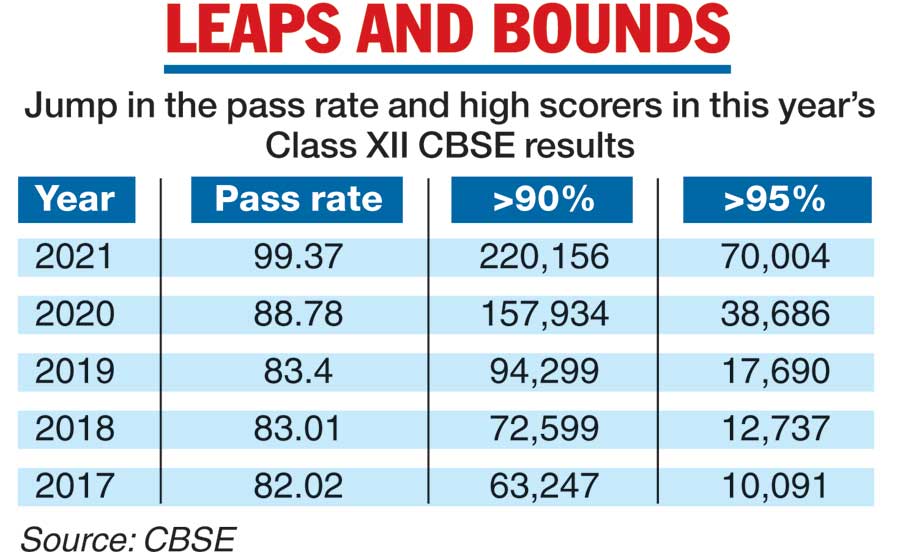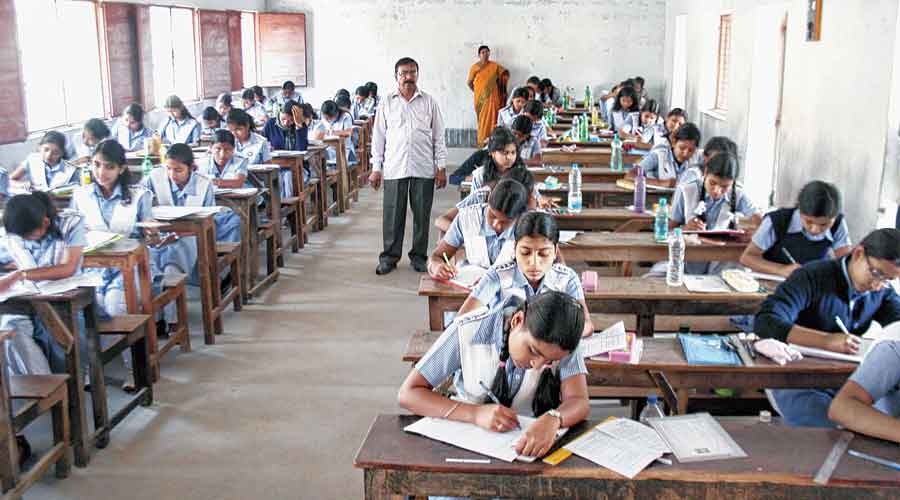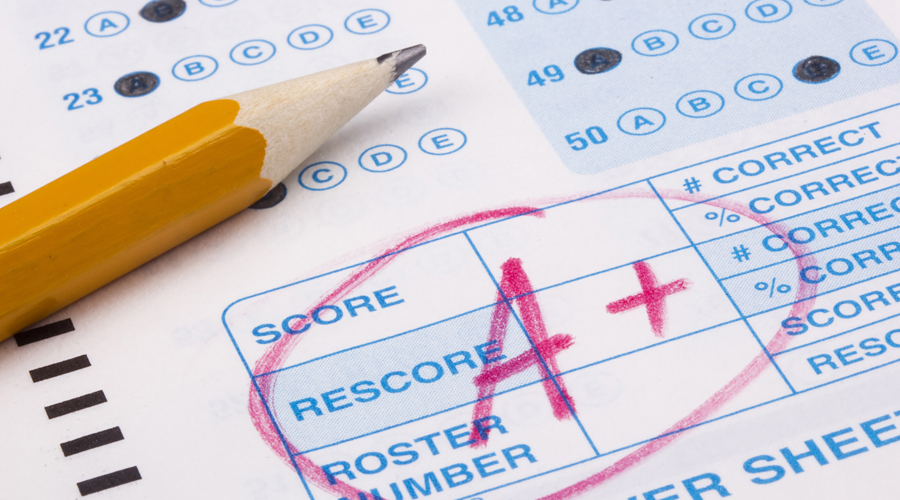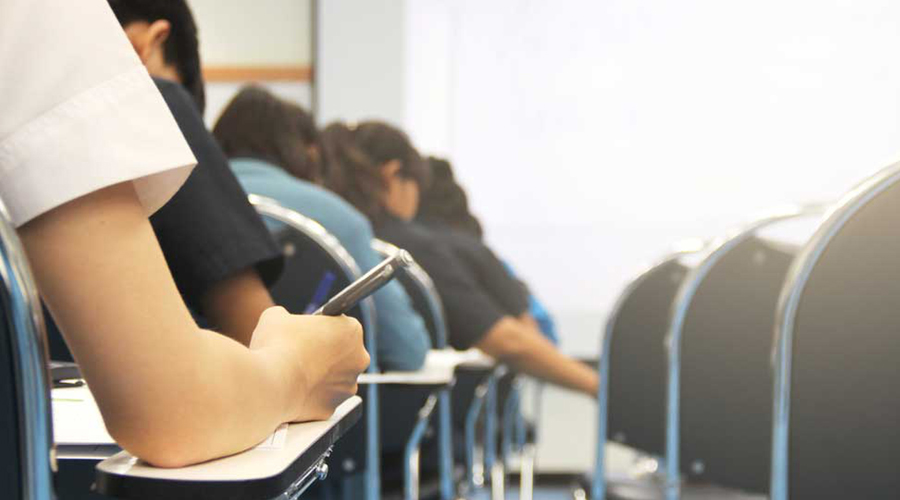Shreya Sasmal, a CBSE student from Udhampur in Jammu, has scored 96.2 per cent in her Class XII boards whose results were announced on Friday.
She said she was happy with her marks but would still have preferred to take a board exam — cancelled this year because of the pandemic, with students awarded scores on the basis of past exams, practical and project work, and their schools’ past performance.
“So many students have scored over 95 per cent this year. This sharp increase in the number of students scoring over 90 or 95 per cent raises many questions,” Shreya said.
A record success rate and a huge leap in the number of high scorers this year have not just undermined the credibility of the assessment but also made undergraduate admissions a challenge for the students and colleges, educationists said.
The pass rate of 99.37 per cent represents a more than 10 percentage point rise over last year’s 88.78 per cent, while the number of students scoring over 95 per cent has jumped 80 per cent.
Shreya wants to be a doctor and will take the NEET-UG in September. But, she said, undergraduate admission processes that are based on Class XII marks can become very complicated.
Anushka Gupta, a student from Bangalore, said she would have performed better had board exams been held.
“I have scored 95 per cent; I would certainly have scored better in some papers in an exam,” she said.
Many other students have voiced similar sentiments, pointing to the huge weightage given to scores obtained in the Class XI and pre-board exams and saying students never prepare as seriously for these tests as for the board exams.
To award the theory marks, the Central Board of Secondary Education gave 30 per cent weightage to a student’s best three scores out of five papers in Class X, another 30 per cent to the marks obtained in Class XI, and 40 per cent to his or her performance in the pre-board exams.
The overall score was then moderated by taking as reference the school’s overall best performance out of the previous three years’ board exams. The school had to ensure that its average marks in each subject this year fell within a range of plus or minus five marks from its average marks in that subject in the reference year.
Also, the average aggregate mark scored by the school’s students this year was not allowed to exceed by more than two marks the school’s average aggregate score from the reference year.
‘Inflated’ marks

Former CBSE chairman Ashok Ganguly said the high pass rate had not surprised him and suggested an inflation of scores by many schools.
“The 30 per cent weightage to Class X board scores was all right. The remaining 70 per cent weightage has been given to secondary data generated by the schools themselves. This data is mostly inauthentic and highly inflated. The results have not much credibility,” Ganguly said.
Some humanities students have argued that the poor marks they had scored in science and mathematics in Class X had unfairly dragged down their Class XII scores.
Ganguly said the results would affect undergraduate admissions in a big way.
“Many students with a good aptitude and attitude may not secure admission to a well-known college this year,” he said.
C.B. Sharma, educationist and former chairman of the National Institute of Open Schooling, too faulted the CBSE’s formula.
“We agree we are passing through unprecedented times but the CBSE, as a professional body of assessment and certification, cannot award certificates that are not trusted,” Sharma said.
“The CBSE will have to justify the more than 10 percentage point increase in the pass rate. Board results are trusted because of a reliable process of assessment. The CBSE’s formula for compiling results does not appear a valid one.”
He said most of the state boards had followed the same formula as the CBSE, and their results too would reflect the same pattern.
“There will be a significant increase in the number of students scoring over 90 per cent or even 95 per cent. A massive number of students will vie for college seats. Admissions will be erratic and beyond expectations this year,” Sharma said.
He said the well-known schools follow a more or less transparent method of internal assessment and exams but the schools located in remoter areas, and even some city schools, do not keep records of their own assessment properly or transparently.
“Many schools have generated these data over the last month, and this data is highly problematic,” Sharma said.
The board has announced the results of 13.045 lakh students while withholding those of another 65,000 regular students whose scores will be announced by August 5.
The board will hold exams for the 60,000 private candidates between August 16 and September 15.
Among the 16 regions, Thiruvananthapuram has recorded the highest pass rate of 99.89 per cent, with Patna bringing up the rear with 98.91 per cent. Girls have notched a pass rate of 99.67 per cent compared with 99.13 among the boys.














